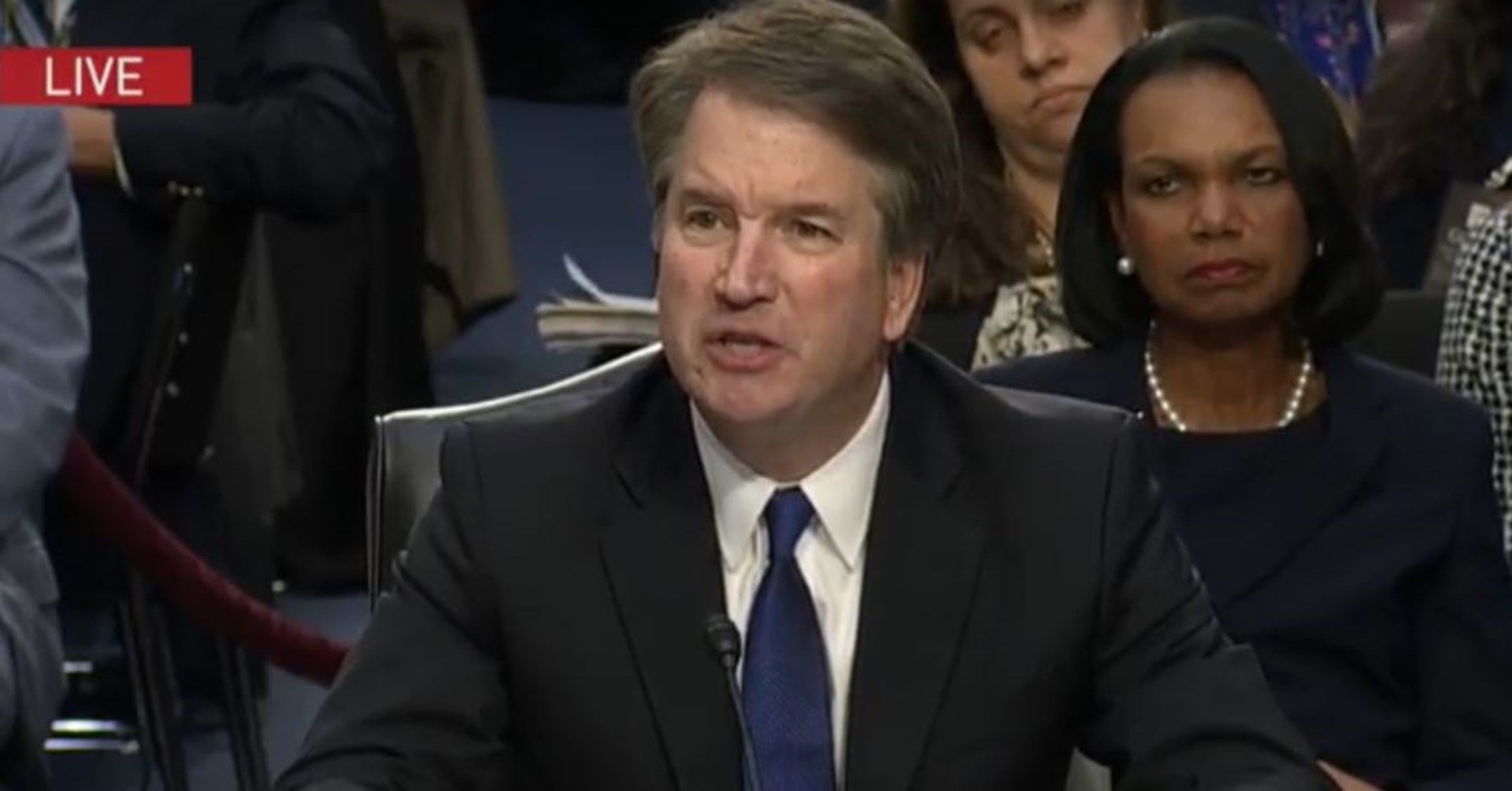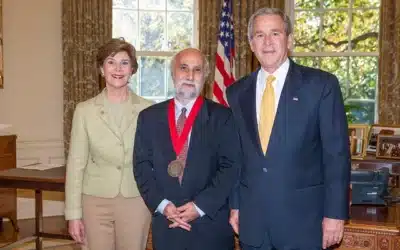After two days of political theater, the Senate Judiciary Committee agreed to delay the vote to confirm Judge Brett Kavanaugh to the Supreme Court for a week. In that time, the FBI will conduct an investigation surrounding the allegations made against him by Christine Blasey Ford.
By now, no one is a stranger to the claims of sexual assault that have been levied against Judge Kavanaugh. In fact, the entire country has been so wrapped up in this case, it is hard to determine what is fact and what is simply partisan politics rearing its ugly head. And between Cory Booker’s lengthy monologue that sounded more like a campaign stump speech than anything else and Lindsey Graham’s unexpected passionate rant, it is clear that both sides are putting way too much stake on the outcome of these hearings. And the real losers, unfortunately, are the American people, who are being diligently distracted from Kavanaugh’s actual policy record.
To be sure, claims of sexual misconduct should certainly be brought to the public’s attention, especially when they involve a nominee for a position as powerful as a Supreme Court Justice. And in the #metoo era, failing to take these allegations seriously would be most unwise. But losing ourselves in this political circus and the subsequent media frenzy surrounding Kavanaugh’s sexual past glosses over another aspect of his professional career that should concern every single individual: his promotion of the national security state.
The PATRIOT Act
The years of 2001-2003 were confusing for Americans as many tried to grapple with the fact that living in the greatest country on earth did not make us immune to large-scale terrorist attacks. These were also the years that Brett Kavanaugh served as associate White House Counsel for then-President George W. Bush.
In the aftermath of 9/11, many people began to believe that the government not only had a right to take drastic security measures against its own people but that our livelihoods actually depended on it. This fear gave birth to the monstrous national security state we live in today, where without just cause, civilians began being treated like criminals in our own country.
One of the most egregious acts perpetrated against the American people at this time was the PATRIOT Act. And one of its greatest supporters was Brett Kavanaugh.
According to the Electronic Privacy Information Center (EPIC), which filed a Freedom of Information Act Request for Kavanaugh’s official government correspondence records from this era, the Supreme Court Justice nominee referred to the PATRIOT Act as a “measured, careful, responsible, and constitutional approach” in an email sent to a colleague. Anyone who knows anything about the PATRIOT Act knows that “constitutional” and “careful” are by no means accurate descriptions. The PATRIOT Act obliterated the Fourth and Fifth Amendment rights to privacy and due process by giving the federal government sweeping new powers to conduct surveillance on the American people.
But his support of the legislation that signaled the downfall of American rule of law does not simply end with his favorable comments. Kavanaugh was also one of the individuals tasked with its drafting. He has been definitively credited with the line, “…the new law will update laws authorizing government surveillance.” And just this one line is rather problematic in itself. If he is the constitutionalist he has claimed to be on several occasions, then he would know that the Constitution already prohibits the government from broad, warrantless searches of this nature. This is not a protection that can simply be “updated.” And yet, his nonchalance over abolishing certain constitutional protections without a discussion of adopting an actual amendment is disconcerting.
The Torture Memos
The public’s discovery of the “torture memos” was a dark time in modern American history. We had been riding our moral high horse during the early years of the War on Terror, pretending that America was the global beacon of moral and ethical treatment. But when the memos, which were originally composed while Kavanaugh served the Bush Administration, were released in 2004, the entire world caught a glimpse of just how ugly military interventions really were.
The memos told a story of members of the Bush Administration attempting to broadly expand the legal definition of torture to justify such horrific acts as waterboarding and sleep deprivation as permissible. They also told of the administration’s quest to seek the authority to label anyone of their choosing an “enemy combatant,” thus, subjecting them to the possibility of indefinite detention in awful facilities like Guantanamo Bay. Their publication also added fuel to the already growing fire of animosity against George W. Bush who, at the time of the memo’s creation, was the employer of Judge Kavanaugh.
In 2006, when Judge Kavanaugh was being questioned by the Senate Judiciary Committee as he waited to be confirmed to the Court of Appeals for the District of Columbia Circuit, he went on the record stating that he knew nothing of these memos before their public release. At several points during his hearing, he denied having anything to do with these memos specifically stating that he was “not involved” in any conversations regarding the rules governing the detention of combatants He also denied ever having seen the correspondence at all. He even told Senator Leahy:
I think with respect to the legal justifications or the policies relating to the treatment of detainees, I was not aware of any issues on that or the legal memos that subsequently came out. This was not part of my docket, either in the counsel’s office or as staff secretary.
The reason this has raised red flags for those already skeptical about Kavanaugh is that his position at the time dictated that memos and other written correspondence would have passed by his desk at some point before reaching their end recipient.
Enemy Combatants
Additionally, a year after the 2006 hearing, the Washington Post reported on a contentious meeting that had occurred in the White House in 2002. The conversation was centered on speculation as to whether or not the Supreme Court would accept the Bush Administration’s assertion that they could label an American citizen an “enemy combatant” at their discretion, allowing the person in question to be locked up for an indefinite amount of time.
As per the Washington Post’s reporting, Judge Kavanaugh was not only present at this meeting but was specifically summoned to weigh in on the matter since he was himself a former clerk for swing vote judge, Justice Kennedy. At the meeting, he voiced his concerns that Justice Kennedy and other swing voters on the Supreme Court would never side with the administration’s controversial decision. This meeting was brought up again just a couple of weeks ago, addressing the concerns some Senators still have over Kavanaugh’s insistence that he had no role in such conversations when it appears that he did.
As the New Yorker points out:
First, attending this meeting or even just contributing a reading of Justice Kennedy’s likely view would seem to constitute taking part in a discussion on detention policies, and thus to contradict Kavanaugh’s sworn testimony.
Senator Durbin, who sat on the Senate Judicial committee in 2006 sent Kavanaugh a letter in which he states, “it appears that you misled me,” but he never received a response, even after he followed up with Kavanaugh recently after he had received the Supreme Court nomination.
Metadata: Due Process for Me, Not for Thee
The 2013 Edward Snowden leaks were arguably one of the most significant events to occur over the last decade. For those who thought the government wasn’t capable of this magnitude of corruption, the blindfold was removed and the government’s true intentions were revealed. For those already skeptical, the leaks had confirmed preexisting suspicions.
In many ways, the Snowden situation drew a line in the political sand. Those who stood for freedom believed in the people’s inherent right to privacy and in upholding the Fourth and Fifth Amendments. But those who supported and sustained the government’s mass surveillance of its own people made their views on individual liberty very clear. And Judge Kavanaugh was not on the right side of history.
At the heart of the Snowden situation was the question of whether or not metadata counted as government surveillance. The government, frantically scrambling to justify its actions, insisted that it was not actually data collection, since metadata did not technically provide any raw data. But metadata still gives very specific information about the type of data collected and therefore is still a violation of constitutional protections.
However, in a ruling in the U.S. Court of Appeals for the D.C. Circuit, Kavanaugh ruled that “the Government’s metadata collection program is entirely consistent with the Fourth Amendment.” He also later stated that “that critical national security need outweighs the impact on privacy occasioned by this program.” Again, a rather odd conclusion for a staunch “constitutionalist” to support.
Congressman Amash expressed his concerns with Kavanaugh’s ruling, tweeting:
Future decisions on the constitutionality of government surveillance of Americans will be huge. We can’t afford a rubber stamp for the executive branch.
This mass surveillance of the American people not only violated the specific statutes in the Fourth Amendment that specified how individuals could be searched by the state, but it also violated the right of due process— the same due process that Kavanaugh has asked be upheld while he undergoes the confirmation process.
Due process is a staple of our American legal system. And while the allegations made by victims of sexual assault should be listened to and investigated, there is more to due process than allowing Judge Kavanaugh to have his day in court. If the government would like to gain access to the private communications of American citizens, it must do so by going to a judge and obtaining a warrant. This warrant must specifically state what property is being searched and what is being searched for, as is specified by the Fourth Amendment.
Requiring law enforcement to go through the proper channels to secure a warrant before violating the privacy of American citizens is part of due process. You cannot support “some” due process while blatantly abolishing certain safeguards that guarantee this right to Americans.
To be sure, accusers of sexual assault deserve to be heard, but before we pass judgment, due process needs to occur. But due process is not meant for one class of people; it is meant for every American citizen whether they are nominated for the Supreme Court like Kavanaugh, or happen to have a radicalized parent like sixteen-year-old Abdulrahman al-Awlaki, who was targeted and killed by the U.S. Military without any semblance of due process.
What’s at Stake
Currently, the entire country is obsessed with focusing on one very narrow aspect of Judge Kavanaugh’s life. True, if these claims turn out to be correct, there is a legitimate cause for alarm. But even if the allegations prove to be false, there are still serious concerns surrounding Kavanaugh’s confirmation on the Supreme Court that should not be ignored.
Most of our lives are now digital, which makes our information extremely vulnerable to hackers both private and government-sanctioned. We cannot afford to put ourselves at risk by empowering judicial candidates who have a proven record of trampling on Fourth Amendment rights.
Additionally, if there is ever a day when it is possible for Edward Snowden to return to the U.S. and receive a fair trial before the Supreme Court, it is hoped that our justices will be up to the task. And given Kavanaugh’s record of upholding the surveillance state in favor of national security, that future is highly unlikely.
































